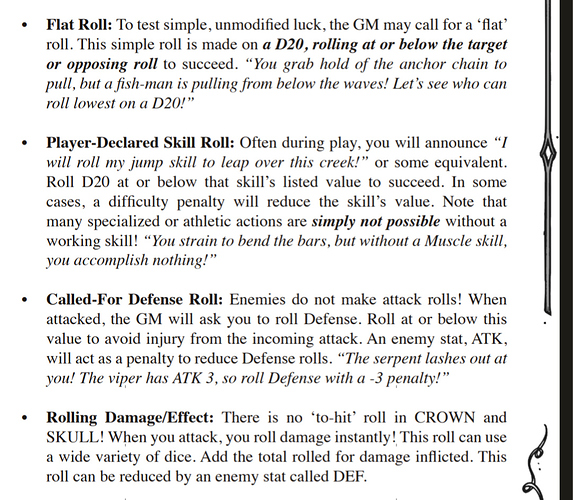I get that skills in C&S represent something that is more than the “common person” can do (or at least have a chance at doing). And it seems like flat rolls are the way to check whether the common person succeeds or fails at a given task. So what do you do when there’s a test that a common person can do and you have a PC in the party with a relevant skill and a PC without? I would think the PC with the skill should have better odds than the PC without. Example:
There’s a stream of acid that is jumpable by the common person. And let’s say it’s a default flat roll to do it (roll 6 or under). But one PC has a Jump skill of 9.
I can think of a few ways to handle this, what would you do?
- All PCs without the skill roll the flat roll of 6 and the skilled PC roll 9
- Let the skilled PC add their skill so that they can roll 15 or under?
- Just give the skilled PC a fixed bonus, say +5, just for having the skill (regardless of what the skill value actually is). So they’d have to roll 11 or under.
- Just assign a one time situational bonus to the skilled PC, totally based on common sense ruling
- Rule that since this is just a common task, the PC’s skill doesn’t apply.
- Something else…
Now then, same question but what if the flat roll was something like a 12, and the skilled PC only had a 6 in the relevant skill?
Bonus points question: Does any of this change for an opposed roll instead of a flat roll?





